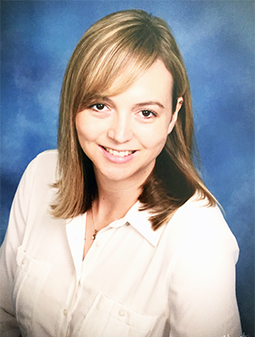Latest News Archive
Please select Category, Year, and then Month to display items
09 December 2020
|
Story UFS entral academic advising team
|
Photo Pixabay

It wasn’t easy, but we all got to this point because we stayed calm and made the effort to learn on even when it was difficult.
The University of the Free State (UFS) has remained committed to supporting you in every way possible, and as you prepare for the final assessments, remember to access the support tools you will need in order to successfully complete the 2020 academic year: https://www.ufs.ac.za/toolsforsuccess
Main exams are running from 30 November to 19 December 2020
All of the best, and break a pen in your upcoming final assessments. For those of you who will be graduating, we cannot wait to see you in that graduation attire; and those who still have some way to go, we cannot wait to serve you again in 2021 as we continue the pursuit of academic success!
Below are five main study tips that you can use for final assessment success:
1. Set a realistic study schedule
You might think that studying for eight hours straight for four days before the exam, will help you get through the work in time. See final edition of the #UFSLearnOn for more information.
2. Structure and organise your work
If your notes are organised, it is also easier for your brain to recall information, even when you become nervous during exams.
3. Practise with an old exam/semester test paper
Practice makes perfect, and although the final assessments might look different in how they are administered, it will still help to practise using old tests and exams.
4. Adapt your strategies to the content
What works for one module or even one learning outcome, might not be effective for another. You need to continually adapt your note-taking and study approaches. See #UFSLearnOn final edition for different study methods.
5. Healthy body, healthy mind
Your brain needs optimal care to perform at its best, and getting physically active (even if it is by jumping in one spot if space is limited) forces your body to release neurotransmitters responsible for positive emotions, which assist in retaining information in your memory …
Download the final edition of #UFSLearnOn that points you towards the resources you’ll need to ace your final assessments and end 2020 off on a high note!
Seasoned international pianist appointed at the OSM
2016-02-05

Dr Grethe Nöthling |
The Odeion School of Music is delighted to welcome Dr Grethe Nöthling as a new member of its dynamic performance faculty.
Dr Nöthling has been appointed as principal piano lecturer. She has won several national music competitions, and is the recipient of numerous awards and bursaries, including the University of South Africa overseas scholarship for teachers in 2003.
Musician and pedagogue par excellence
From 1989 to 2005, Dr Nöthling performed as soloist with all major South African Symphony Orchestras. She obtained a Bachelor of Music Degree (magna summa cum laude), specialising in Performance from the University of Pretoria under the tutelage of Professors Ella Fourie and Joseph Stanford.
She furthered her studies in the United States of America at the Cleveland Institute of Music where she received a Master’s of Music Degree in 2008 under the guidance of Daniel Shapiro and Paul Schenly.
Dr Nöthling obtained a Doctorate of Musical Arts Degree (2014) from the University of Iowa (UI) in the USA under Professor Uriel Tsachor. During her studies at the U of I, she was awarded a teaching assistantship, and performed with the university’s New Music Ensemble. During a ten-year residency in the USA, she has performed extensively as both soloist and chamber musician.
Inspiration for aspiring musicians
“It is my hope to be an inspiration for young and upcoming musicians both as pedagogue and performing artist. In order to consider the unique gifts and challenges of every individual student, I am of the opinion that is imperative to be very flexible and adjustable from a methodological and musical perspective,” said Dr Nöthling.